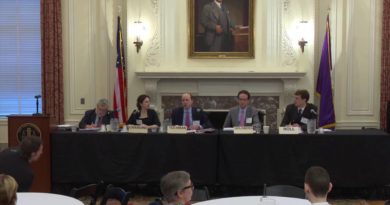New Jersey Supreme Court Rules Nondisparagement Clauses in Settlement Agreements May Violate the NJ Law Against Discrimination
On May 7, 2024, the New Jersey Supreme Court held in Savage v. Township of Neptune that a non-disparagement clause in a settlement agreement between a former police sergeant and her former employer resolving sex discrimination, harassment and retaliation claims was against public policy and unenforceable under the New Jersey Law Against Discrimination (“LAD”).
As background, the New Jersey legislature amended the LAD in 2019 to permit plaintiffs to discuss details surrounding their employer’s alleged harassment, discrimination and/or retaliation, even after the plaintiff signs a settlement agreement releasing their claims. Specifically, N.J.S.A. 10:5-12.8(a) (“Section 12.8”) states:
- “A provision in any employment contract or settlement agreement which has the purpose or effect of concealing the details relating to a claim of discrimination, retaliation, or harassment (hereinafter referred to as a ‘non-disclosure provision’) shall be deemed against public policy and unenforceable against a current or former employee (hereinafter referred to as an ‘employee’) who is a party to the contract or settlement.”
In this case, the plaintiff alleged that her former employer engaged in sex discrimination, harassment and retaliation in violation of the LAD. To resolve her claims, the parties entered into a settlement agreement in July 2020, which included the following nondisparagement clause:
- “The parties agree not to make any statement written or verbal, or cause or encourage others to make any statements, written or verbal regarding the past behavior of the parties, which statements would tend to disparage or impugn the reputation of any party. The parties agree that this non disparagement provision extends to statements, written or verbal, including but not limited to, the news media, radio, television, … government offices or police departments or members of the public.”
After the claims were settled, the plaintiff participated in a televised interview with a local news channel where she stated that she had been abused by her former employer and was the subject of harassment and retaliation through “bogus disciplinary charges.” The former employer filed a motion to enforce the settlement agreement, to which the plaintiff argued that Section 12.8 of the LAD precluded enforcement of the nondisparagement provision related to her statements during the interview. The trial court held that Section 12.8 refers only to non-disclosure and confidentiality agreements, and that the plaintiff here had violated an enforceable nondisparagement clause. The Appellate Division affirmed in part and reversed in part, finding that the nondisparagement clause was enforceable, but that the plaintiff did not violate it.
On appeal, the New Jersey Supreme Court disagreed with the lower courts, holding that the broad scope of this nondisparagement provision would have barred the former employee from describing the employer’s discriminatory conduct, and therefore directly conflicted with Section 12.8 of the LAD. The Court focused on the LAD’s legislative history, stating that the law was enacted in the wake of the #MeToo movement to remove barriers that make it difficult for survivors to report abuse. The Court stated that the operative terms of Section 12.8 ask whether a settlement provision “has the purpose or effect of concealing the details relating to a claim of discrimination, retaliation, or harassment,” regardless of how it is labeled. (emphasis added). The Court also noted that Section 12.8 carves out particular provisions that might otherwise be barred by the statute’s plain language, such as noncompete provisions, and pointed out that nondisparagement clauses are not specifically exempted. Using its analysis of legislative history and principles of statutory interpretation, the Court held that the nondisparagement clause at issue would have a prohibited “purpose or effect” under Section 12.8, and was therefore against public policy and unenforceable.
Moreover, the Court found that the narrow “savings” clause in the settlement agreement, which carved out “testimony or statements of Plaintiff related to other proceedings including lawsuits” was insufficient to make the non-disparagement provision here enforceable, because Section 12.8’s protections “extend beyond statements made in pleadings or courtrooms.”
Takeaway
The New Jersey Supreme Court’s unanimous ruling makes clear that nondisparagement clauses in settlement agreements may not prevent a plaintiff from discussing the “details relating to a claim of discrimination, retaliation, or harassment,” or they risk being found unenforceable by courts.






